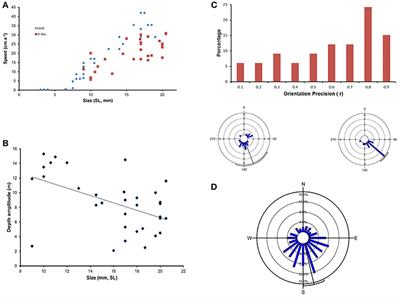ORIGINAL RESEARCH
Published on 25 Jul 2018
Biophysical Simulations Support Schooling Behavior of Fish Larvae Throughout Ontogeny

doi 10.3389/fmars.2018.00254
- 2,490 views
- 11 citations
10k
Total downloads
61k
Total views and downloads
ORIGINAL RESEARCH
Published on 25 Jul 2018

REVIEW
Published on 02 Jul 2018

ORIGINAL RESEARCH
Published on 13 Jun 2018

ORIGINAL RESEARCH
Published on 31 May 2018

ORIGINAL RESEARCH
Published on 15 May 2018

ORIGINAL RESEARCH
Published on 26 Mar 2018

ORIGINAL RESEARCH
Published on 01 Mar 2018

ORIGINAL RESEARCH
Published on 21 Feb 2018

REVIEW
Published on 13 Feb 2018

ORIGINAL RESEARCH
Published on 13 Oct 2017
